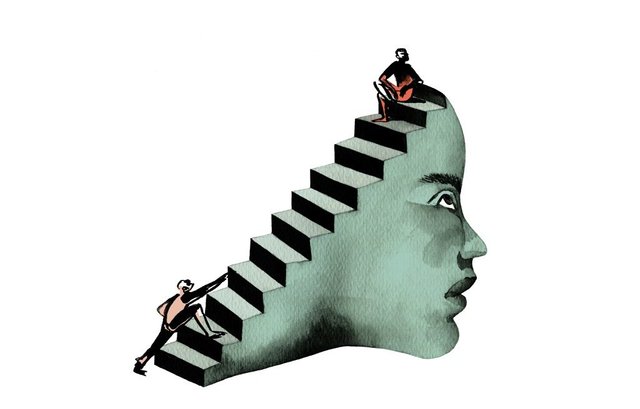The Main Antivalue of Socialist Principles

John Rawls said in his catastrophic "Theory of Justice" book that no citizen, no matter how meritorious his actions may be, deserves neither greater natural capacity nor a more favorable initial place in society.
Those who have been favored by nature, whoever they want them to be, can profit from their good fortune only to the extent that they improve the situation of the unfavored, that is, it is a moral obligation of those favored by nature to help those not favored to be considered as "moral" persons. Those favored by nature will not be able to gain by the mere fact of being more gifted, but only to cover the costs of their training and education and to use their gifts in such a way that they also help the less fortunate.
According to this position for Rawls people of great importance to society and who have changed the world by bringing an unimaginable value 50 years ago are people whose talent should not be seen as positive or remunerated, i.e. people like Steve Jobs, Jeff Bezos, Albert Einstein, Tesla, Elon Musk, etc. They should not be considered geniuses for the immeasurable value they have given to society. Otherwise they had a moral obligation to the one who was least "favoured".
It should now be noted that philosophers of great importance for the development of humanity have already addressed this position of Rawls and have made it the object of criticism. A clear example is the philosopher Any Rand who said that it was not against social institutions or gueramental favors against which Rawls rebels, but against the existence of human talent; not against the privileges granted by some politicians to certain companies, but against reality and against human nature; much less against social injustice, but against the fact that some men are born with better brains and make better use of them until they achieve the success and recognition of society. The new "theory of justice" demands that men counteract the "injustice" of nature by institutionalizing the most obscenely unthinkable injustice: To deprive those "favored by nature" (i.e., the right to life) and grant the incompetent, the stupid, the lazy the right to the enjoyment of goods that they could not produce; they could not imagine and would not even know what to do with them.
More than 200 years we have lived with socialist postulates that affirm that the majority of citizens should be considered exploited, subjugated, stolen and swindled by businessmen, and due to their effective advertising marketing many have ended up believing it and integrating it into their scheme of thought as a dogma. This stupid and irrational idea has also managed to settle in the minds of many of the politicians of the underdeveloped countries who think the same about the countries of the first world.
What seems most relevant to my analysis is the role played by an anti-value such as envy in this whole affair, it is the hidden motive of the overwhelming majority of those who call themselves socialists who advocate any form of collectivism or interventionism. This group of thinkers who consider it fair to destroy or punish the supposed exploiters in the richest and least poorer capitalist societies, while boasting about preaching of having been blessed with the gift of absolute understanding and tolerance of poor welfare, low standard of living and greater inequality, is precisely where it ends up being established, where some form of collectivism governs. Most socialisms have revenge as an objective, the various forms of intervention disguise envy and call it "just indignation" or things like that in order to justify what any decent person considers a vicious and destructive attitude.
Just as the socialist Rawlseano abhors the natural gift, so does he with individual success as a result of effort. Mainly because a society based on hierarchy, merit, personal risk and entrepreneurship (which is how Austrian economists call the ability of every human being to find a way to meet the needs of others and make a profit) could never be aligned with the principles of socialism. To implement its model of society, the left needs to corrupt those who never succeeded and failed to bring real value to society, those marginalized by society itself for not having merit. However, there is a being that is more repulsive for the left and is the one who, although he has not contributed a significant value to society, understands that the only way to have merit is to be recognized by society through the value contributed, the left will consider the latter as the most repulsive being within society and considers him an enemy of "collectivism", an alignment of imperial powers and a social declassification.
When one then analyzes all the positions behind this so-called "socialism" to see those who enthusiastically support collectivists, one ends up coming to the conclusion that it is envy and ignorance within a sea full of readings (especially in intellectuals) that blind people and what is behind them all, since it should not be forgotten that the various socialisms proclaim that when someone triumphs, when someone succeeds, it stands out in something is because "something has taken away from others, something has deprived them".
Envy comes from the Latin word "invidere" which means to look at someone with bad eyes, according to dictionaries is a feeling of sadness or anger experienced by a person who does not have or would like to have for himself something that another possesses.
Socrates had a dialogue with one of his pupils and they had an excellent digression on this precise subject of the envy of the human being as an anti-value, it is when he makes use of the mayéutica to filter all the negative messages of which he was accused.
Teacher, there's an acquaintance of mine who's talking about you with malevolence," says the student.Now, what am I going to do with this dialogue? Well, I have no doubt that social relations would be much more positive if we used these filters that applied socrates. It is very difficult for most people to take into account these three principles before opening their mouths in order to be able to criticize the one who strives to achieve success while he watches on television in a mocking tone. Simply envy.Wait! The philosopher interrupts. Have you passed through the three filters what you're going to tell me?
The three filters? asked his disciple.
"Yes," replied Socrates. "The first filter is TRUTH. Have you already carefully examined whether what you want to tell me is true in all its points?
"No... I heard it from some neighbors...".
"But at least you have passed it through the second Filter, which is the BONDAD: Is what you want to say to me at least good?
"No, not really... on the contrary..."
.
"Ah!" interrupted S. - Socrates interrupted: "Then let's go to the last filter. Is it NECESSARY for you to tell me that?"
To be honest, no.... It's not necessary.
Then," smiled the wise man, "If it is not true, neither good, nor necessary... let us bury it in oblivion...".
Envy is possibly the most "deadly" of the known diseases, and usually ends up becoming an epidemic and even a pandemic. Behind envy lies a lack of self-esteem, self-esteem and self-efficacy. Generally envy leads to forgetting one's own riches, one's own worth, by coveting the riches of others, not developing our potentialities, and not pursuing qualification, excellence, because envy carries with it the condemnation of talent, success and the merit of others.

The eldest of the envious usually desires, fantasizes, and even carries out actions of harm or destruction directed at the envious; it also makes him happy that the person he envies has a bad streak or is simply going badly.
Another question specific to envious people is that they tend to make a curious "rationalization" in order to maintain their state of envy: they argue that in their life they have had bad luck, that they are victims of society... and that the people they envy, on the contrary, have been graced by good luck.
If you look closely at the life of the envious person, you will see that his experiences of failures in his loving, working and social life have been frequent; and not precisely because of bad luck but because he has not taken into account the various factors present when making his decisions and acting, precisely because of his low tolerance of frustration and also because of his permanent aspiration, his desire to have maximum satisfaction in the most immediate term. From this perspective, the "healthy envy" that some speak of does not exist, there is only one kind of envy and it is "pathological".
 Posted from my blog with SteemPress : Here
Posted from my blog with SteemPress : Here 